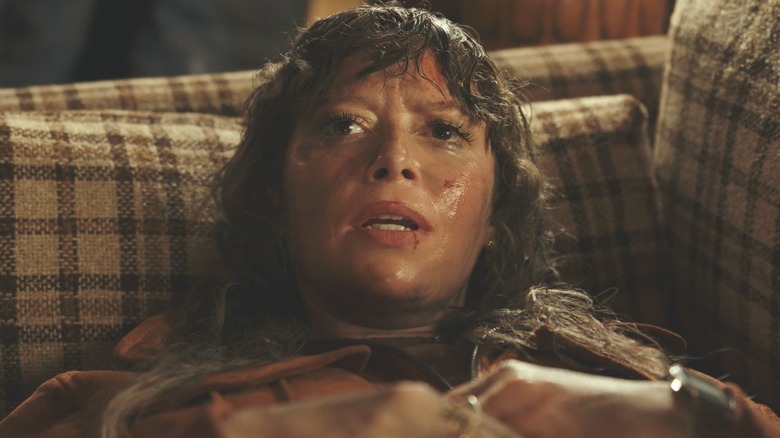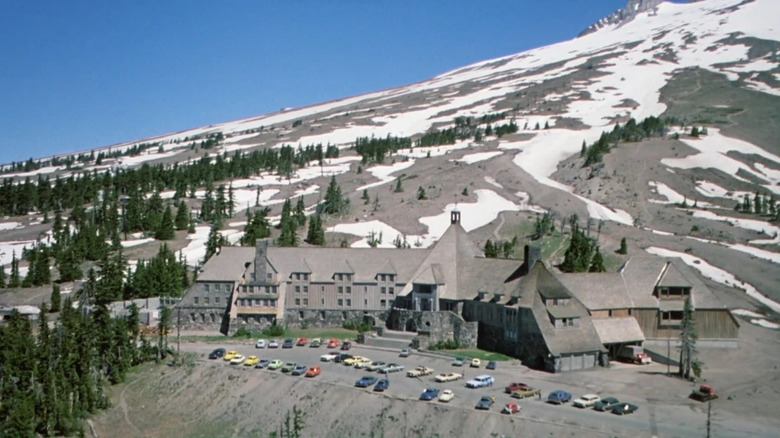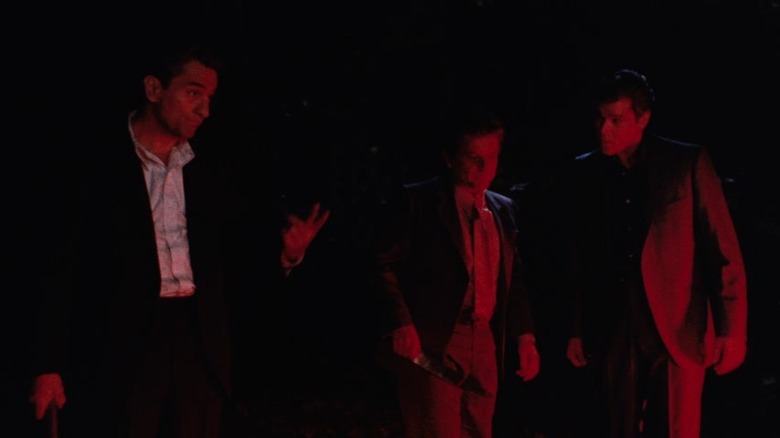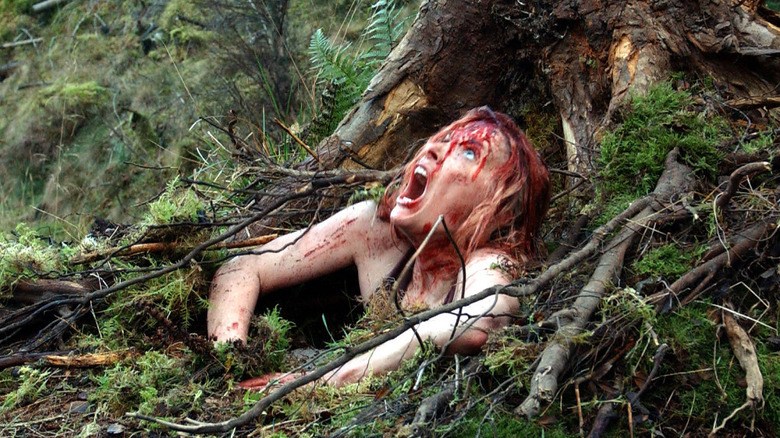All The Movie References In Poker Face Episode 9
This article contains spoilers for "Poker Face."
The penultimate episode of "Poker Face" season 1, "Escape From S*** Mountain," saw our favorite lie-detector Charlie Cale (Natasha Lyonne) avenge three murders and narrowly escape an early grave herself.
This episode is also the third and final episode that creator Rian Johnson personally directed this season. Johnson wears his filmmaking influences on his sleeve, like how "The Last Jedi" includes a casino-set crane shot homaging 1927 silent classic "Wings." Johnson is also the first director to get a "Vertigo" dolly-zoom into a "Star Wars" movie. "Brick" and The Benoit Blanc series are loving homages to mystery fiction of all sorts, and eagle-eyed viewers of "Knives Out" might have noticed a sly reference to Anthony Shaffer's "Sleuth."
Johnson's directing "Escape from S*** Mountain" demonstrates the same overflowing, omnivorous love for cinema that his film work does. That love again manifests in homage, both in the story (written by Nora & Lilla Zuckerman) and the way Johnson composes his shots.
Stranded like The Shining
"Escape from S*** Mountain" takes place in the mountains of Colorado. Charlie is initially content to settle down there during summer, but come winter, she's trying to, well, escape. After a minor car crash, she gets struck by Trey (Joseph Gordon-Levitt), a house-arrested banker on a joy ride after his security's power is knocked out. Trey takes the knocked-out Charlie to a motel run by his friend Jimmy (David Castaneda) — but things get complicated for them when it turns out she's still alive.
So, a small group of people are trapped in a hotel on a snowed-in Colorado mountain, with murder boiling beneath the surface. Sound familiar? It should, for this is the set-up for "The Shining," written by Stephen King and adapted by Stanley Kubrick. The episode nods to this influence when a half-delirious Charlie declares, "I've always been the caretaker," echoing what ghostly butler Grady (Philip Stone) told Jack Torrance (Jack Nicholson).
Kubrick's film also emphasizes the cabin fever that the Torrances suffer before Jack snaps. Trey's repetitive, mind-numbing house arrest, shown via montage, fits the same theme nicely. Whether it's work or play, doing the same thing day-in-day-out will make Jack a very dull boy.
Trunking a body, Goodfellas-style
Like its chief inspiration "Colombo," each episode of "Poker Face" shows the crime first, before flashing back, introducing Charlie, and letting her catch up to the murder and then unravel it. So, we first see Trey hitting Charlie from his perspective. If you're in his shoes and devoid of a conscience, there are two options: hit-and-run or hide the body. Trey picks door #2 and loads Charlie into his trunk, narrowly missing the notice of another car passing by.
What struck me about this moment was the red glow (the diegetic source is Trey's tail lights). The lighting and body-in-a-car-trunk context made me think of "Goodfellas," when the titular mafiosos are driving around with the body of Billy Batts (Frank Vincent) in their trunk. When they hear sounds coming from the trunk, they pull over to finish the job. Bathed in a red light reflecting their murderous intent (and also coming from the car lights), Tommy (Joe Pesci) butchers Batts before Jimmy (Robert De Niro) double-taps him with a revolver. Cue Tony Bennett's "Rags to Riches," Henry's (Ray Liotta) "As far back as I can remember..." voiceover, and you know the rest.
Breaking out of a tree-grave
When Trey first gets to Jimmy's, they dump Charlie in "the spot," a shallow cavern at the base of a tree. When she belatedly wakes up, she has to crawl out of the ground — and I do mean crawl since her leg is broken from the crash.
Charlie's escape reminded me of a climactic moment from Neil Marshall's "The Descent." Sarah (Shauna Macdonald) spends the film underground, attacked by atavistic cave dwellers who look like demons. Her salvation seemingly comes when she manages to break out of the ground — though in the (much superior) uncut ending, it was a hallucination.
What makes me think "The Descent" was Johnson's influence for this moment is the exact overlap of the settings; both Sarah and Charlie emerge headfirst, gasping for air, at the base of a tree. Plus, Macdonald had a small role in "The Last Jedi" as a Resistance Pilot, so I'd wager Johnson is familiar with her work.
That said, my colleague Danielle Ryan has suggested this could also be a reference to "Kill Bill: Volume 2," when the buried-alive Beatrix Kiddo (Uma Thurman) breaks out of her grave. Considering Charlie manages to achieve the same justice that Kiddo did, I wouldn't doubt it.



